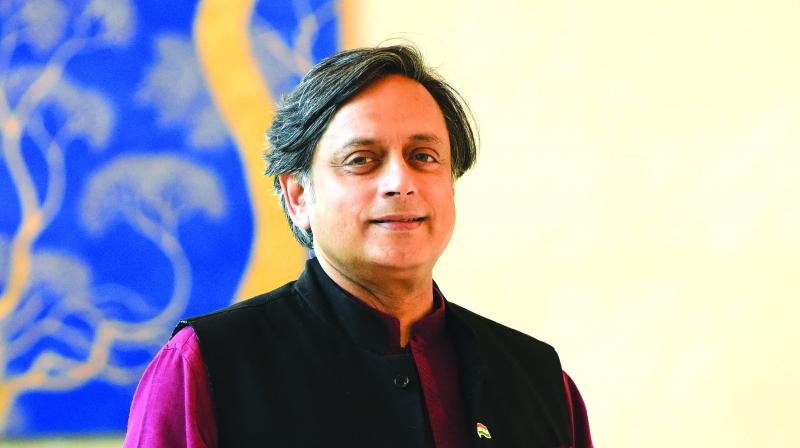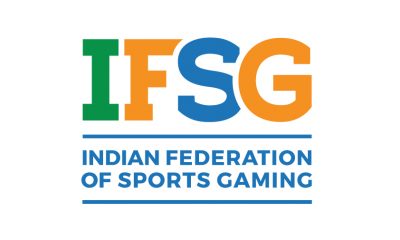Congress Member of Parliament (MP) Shashi Tharoor introduced a private member’s bill, namely, the Sports (Online Gaming & Prevention of Fraud) Bill, 2018 in the Lok Sabha on 28 December 2018.
The Bill, largely based on the Law Commission of India’s recommendations in its 276th Report, has been introduced with the purpose of dealing with two separate but connected topics that the government has made little attempt to focus on:
(i) penalising match-fixing and manipulation of domestic and international sporting events; and
(ii) creating an over-arching national regulatory and licensing framework for overseeing and permitting online sports gaming in the country, subject to numerous safeguards and guidelines.
The first part of the Bill deals with creating an offence of ‘sports fraud’ which includes manipulation of the result of a domestic or international sporting event in exchange for illegal gratification, disclosure of inside information, misrepresentation of a participant’s age, etc.
The second part of the Bill deals with the creation of a seven-member national-level Online Sports Gaming Commission that is tasked with regulating and licensing all online sports gaming in the country, coordinating with law enforcement agencies to crack down on illegal online sports betting and monitoring suspicious betting patterns with a view to identifying and tracking manipulation of sports games.
Online sports gaming has been defined in the Bill to include prediction on the result of a sporting event and placing a bet on the whole or part of the outcome of a sporting event through a telecommunication device. Importantly, the Online Sports Gaming Commission will be empowered under the proposed legislation to issue rules to impose various restrictions on betting on sports matches to ensure that people are able to engage in sports gaming in a limited manner.
The kind of restrictions that can be imposed by the commission includes limiting access to online sports gaming websites to people of certain age groups like minors, the fees to be charged for betting, restriction on giving credit facilities for betting, etc. The Bill also makes a provision empowering the central government to allow, by notification, Foreign Direct Investment (FDI) including foreign technological collaboration in licensed Online Sports Gaming websites. Both the portions of the proposed legislation, the first one attempting to curb the menace of cheating in sport and the second one to regulate and control online sports betting in the country try to fix important lacunae in the law. The issue of bringing a strong law to criminalise match-fixing has been put on the back-burner by the current government.
The UPA government, in 2013, tried to draft legislation to prevent sporting fraud, which however could not make progress due to inter alia, the parliamentary logjam prevailing during the period. Without a specific law dealing with sporting fraud, it is almost impossible to punish sportspersons and others involved in IPL type spot-fixing and cheating scandals. Under the current laws, the provisions that the law enforcement authorities invoke against erring sportspersons and other persons involved in fixing syndicates is cheating under the Indian Penal Code and charges under some state organised crime legislation like Maharashtra Control of Organised Crime Act (MCOCA).
However, it is plausible to argue that the definition of cheating under IPC does not envisage the offence of manipulation of sporting events. Indeed, the same line of argument was noted by Patiala court judge Neena Krishna Bansal in 2015, while discharging cricketers S. Sreesanth and bookmakers accused of fixing IPL matches. Till date, no sportsperson has ever been convicted of fixing or cheating due to the absence of any specific law on the subject. The only punitive action that can be enforced against erring sportspersons is by the sporting association – that of banning that particular person from participating in competitive sports.
Even that action can be scrutinized and challenged in court and can be overturned on procedural and other grounds, as was successfully done by former Indian cricket captain Mohammad Azharuddin. Consequently, there is no effective deterrent today to prevent cricketers and other sportspersons from brazenly indulging in match manipulation. The attempt to bring strong punitive action against those indulging in fixing is thus a welcome attempt to address the lacunae in present laws. Similarly, the attempt to regulate online sports betting at a federal is a welcome step for a variety of reasons. First, whilst betting and gambling is a state subject under the Constitution, it may be impossible for individual states to regulate activity on the internet, where state and national boundaries often get blurred.
Therefore, it would be best for online sports betting to be regulated by an independent body under a Central law, where operators can be licensed under a specific and stringent set of guidelines, which include placing betting limits, restriction on betting/gambling advertisements, restriction on minors from accessing betting websites etc. Regulation of online sports betting under a central law, while leaving physical forms of betting and gambling for states to legislate is a constitutionally tenable proposition.
Central legislation on online sports betting, while leaving out other forms of gambling, including offline gambling, as proposed by Tharoor, can be done by invoking the parliament’s jurisdiction to legislate on telecommunication and inter-state trade and commerce. Secondly, permitting regulated online sports betting under oversight from a regulatory body makes it possible to monitor betting trends, including suspicious trends. For instance, if there has been heavy betting on a particular improbable outcome in a game, and if that improbable outcome materialises, it may be possible to trace and investigate the source of the bet and check whether the bettor had any inside information or connections with any sportsperson or support staff.
Thirdly, the laws penalising sports betting, particularly online sports betting are not clear. Most state gaming legislation are governed by archaic Gaming Acts that neither envisages online gambling or betting. Further, games of skill are exempted from the definition of gambling and betting (in most states), and a 1996 Supreme Court judgment stated that horse racing, being a game of skill, betting or wagering on it cannot be a criminal offence.
A similar analogy can be drawn to betting on cricket or other sports, which are also games of skill. Indeed, such observations have been made by the district judge in the Sreesanth case mentioned above, while noting that betting on cricket, being a game of skill does not amount to any offence. Thus, when an activity like sports betting continues unabated and no strong punitive action is possible, it would be worthwhile to legalise and tax the activity and allow the state to earn revenues, rather than leaving the business in the hands of underworld syndicates who are known to launder and channelise profits from cricket betting to other nefarious criminal and terror-related activities.
Studies suggest that the size of the sports betting market in India is anywhere between US$60-130 billion. Even by conservative estimates, at least Rs. 15,000-20,000 crores can be earned by the government by way of taxes. Allowing the sports gaming industry to be carried out in a streamlined manner also opens up avenues for employment and technological innovation. While all the issues of match-fixing and sports betting are worth legislating upon, it is well known that private member’s bill rarely get discussed extensively and it is even rarer for such bills to pass in both houses of parliament.
Tharoor therefore in a series of tweets put out after introducing the Bill, noted that his aim was to put the legislation out in the public domain for discussion and that it was incumbent upon the government to facilitate their enactment. One hopes that the government takes note of Tharoor’s plea and moves in the direction of introducing legislation to prevent match-fixing and regulating sports betting.
Note: The article was first published in The Statesman on 10th January, 2019 and is available here.



















